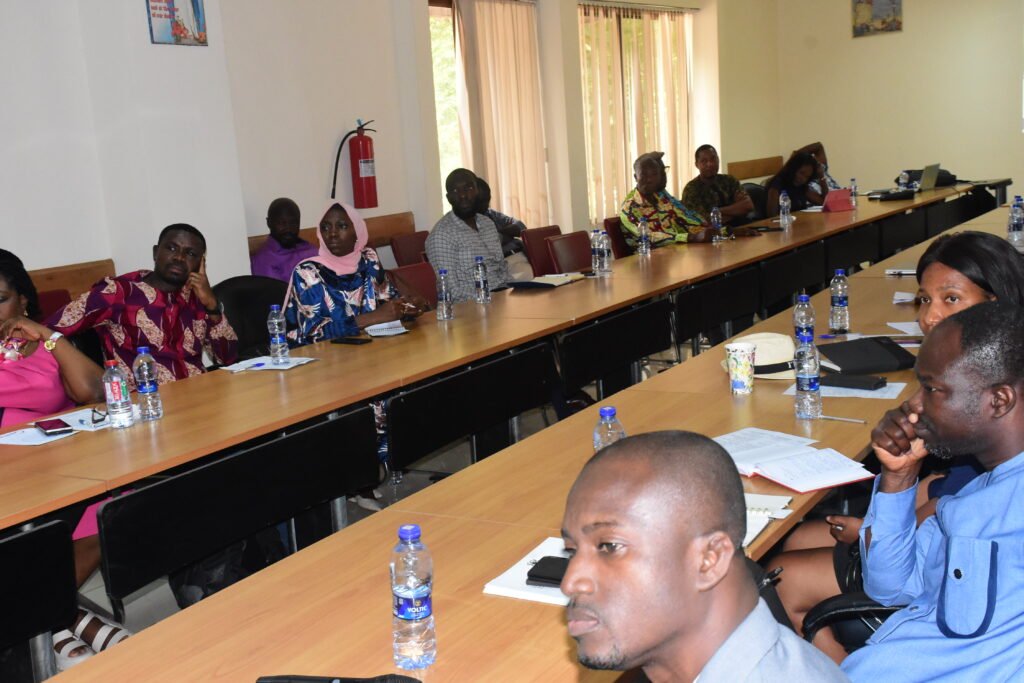ARTICLE AD
The Head of the Civil Service has directed all chief directors of the service to develop gender action plans and gender targets in their performance agreements for next year.
The Head of the Civil Service, Dr Evans Aggrey Darkoh, who gave the directive, said this was in line with the Service’s commitment to integrating gender mainstreaming in all activities and programmes of departments and agencies.

Dr Darkoh was speaking yesterday via Zoom at the opening of a two-day workshop in Cape Coast for gender desk officers on the introduction of National Gender Diversity Taskforce (NGDT), Policy Frameworks and Action Planning.
It was organised by the Emerging Public Leaders in collaboration with the Office of the Head of Civil Service to equip participants with strategies for advocating gender-inclusive leadership and addressing intersectional gender barriers in the public sector.
The programme sought to provide participants with a comprehensive overview of the Taskforce’s work, goals, and ongoing initiatives.
It will also serve as a platform for members to engage with each other, develop strategies for the future, and align efforts toward achieving impactful gender diversity outcomes in the public sector.
Their mandate includes influencing policies, advocating gender equity, and addressing structural barriers to women’s advancement in leadership roles.
About 40 participants from various ministries and agencies, including the Gender, Education, Health, Energy and Infrastructure, Local Government, Attorney General, Tourism, National Security, Employment and Labour, Parliamentary Affairs, Land and Natural Resources, and Work and Housing.
Dr Donkoh indicated that the Head of Civil Service and the Ministry of Gender, Children and Social Protection were leading to integrate gender mainstreaming into all activities and programmes within the ministries and departments.
He said the aim of the initiative is to establish a practical foundation in advancing gender coordination and promoting inclusive practices which would ultimately improve the overall performance of the service.
He said the gender action plan that had been developed was applicable to all departments of the Service and that the framework was piloted in three agencies, which had resulted in the implementation of initiatives in the agencies.
Dr Donkoh argued that the development and implementation of gender action plans in all civil service institutions was important as the piloting had provided the needed insight into the roll-out of the initiative across the entire service.
“We are highlighting and putting our gender issues on the front burner so that they can inform the decisions that we take and also present the service as sensitive to the gender diversity within our republic,” he stated
The purpose of the workshop, he explained, was to equip participants with the knowledge and tools needed to enable the Civil Service better address issues while deliberately including gender mainstreaming in its programmes and activities.
“Organisations that are not gender-sensitive will come under a lot of criticisms and therefore the Civil Service wants to be a torch bearer as far as the public service is concerned,” he said.
The Director in charge of Reforms at the Office of the Head of Civil Service, Elizabeth Obeng Yeboah, in an interview, explained that the rationale for the workshop was to gather Gender Desks Officers in the various ministries.
According to her, they had been found to be lacking certain insights in terms of policies, environment and practices.
She said the workshop was, therefore, to equip them to identify gender-based issues and adopt the best ways to address them.
FROM DAVID O. YARBOI-TETTEH, CAPE COAST

 3 days ago
45
3 days ago
45 

